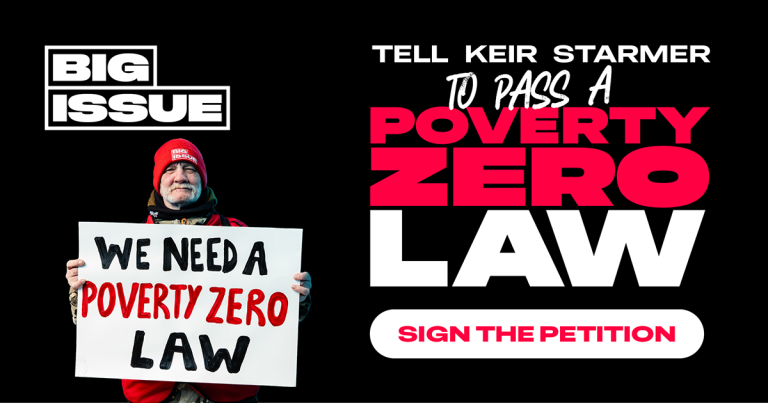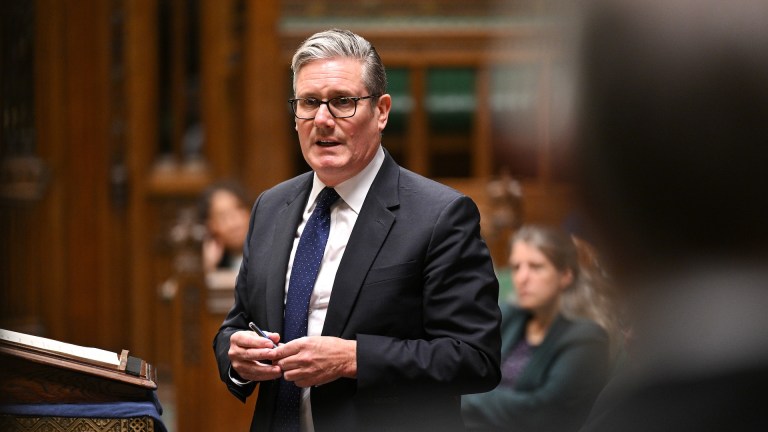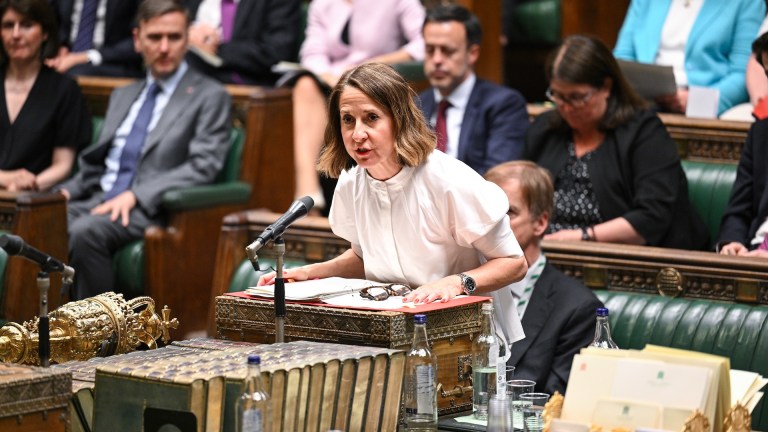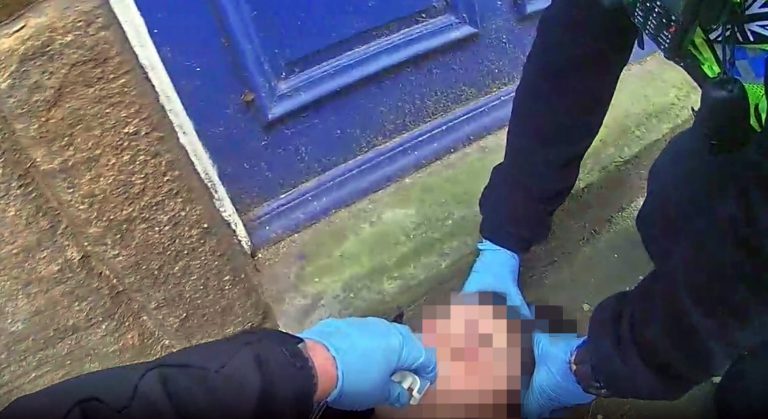According to the Resolution Foundation, regardless of how exactly the current government implements these reforms to the work capability assessment, “if their total savings are to match those of the previous plan, they will inevitably have a downward effect on the incomes of many low-income families”.
Disability charities have called the plans “devastating”. Richard Kramer, chief executive of Sense, said: “The government’s decision today is deeply disturbing for disabled people. They have chosen to continue the previous government’s harmful plans to reduce access to benefits.
“This risks undermining the wellbeing of disabled people, and the consequences could be devastating. Disabled households are living in crisis, their current welfare benefits barely cover the essentials and spiralling food and energy costs have pushed many into debt and despair.
“But instead of choosing to give disabled people proper financial support and beginning to transform lives, the government has played into the dangerous narrative that disabled people should be forced to work and tightened the work capability assessment. They did this knowing that not all disabled people can work.”
Under the Conservatives, the DWP confirmed that the reforms would cut the number of people due to be put onto the highest tier of incapacity benefits by more than 424,000 people, equating to a loss of almost £400 every month per person.
“This contemptible measure is purely about saving money at disabled people’s expense. It will force still more disabled people into poverty,” Kramer said. “We are demanding that this dismal decision is urgently reversed. We need the government to realise that benefits are a lifeline and disabled people need more financial support not less.
Advertising helps fund Big Issue’s mission to end poverty
“Instead of pushing on with measures that will directly harm hundreds of thousands of disabled people, benefits should be properly reviewed through the government’s plans to consult on them – and the views of disabled people should be listened to.”
The proposals will initially impact new claimants undergoing the work capability assessment, but current claimants could be impacted if their circumstances change, such as if they move house.
Anela Anwar, chief executive of anti-poverty charity Z2K, said it is “bitterly disappointing” Reeves has decided to “press ahead” with the plans to cut the welfare bill.
“Disabled people living in poverty, who will bear the brunt of these cuts, already face some of the poorest living standards in our country. The impact on communities of the removal of this support will be very serious indeed,” she said.
According to the Office for Budget Responsibility, proposed cuts to the work capability assessment would have led to only 3% of those affected moving into work.
“The government said it wants to restore trust between the DWP and disabled people. But by returning to the same old failed approach of cutting benefits, it is seriously endangering these efforts before they have even got started. This will have serious implications for its plans to reduce economic inactivity,” Anwar added.
Advertising helps fund Big Issue’s mission to end poverty
“The government must now urgently set out the long-term plans for reforming the work capability assessment, as promised in its manifesto. Further cuts to our threadbare social security system won’t drive growth. They will just deepen decline.”
The work capability assessment scores people based on their capability for work. People who score the highest are placed in the limited capability for work related activity (LCWRA) group, and those scoring below this but still qualify for support are placed in the limited capability for work (LCW) group.
If people do not score high enough for either of these categories, they will be expected to look for work while on universal credit – putting them at risk of sanctions if they refuse a job, even if they think it might be unsuitable for them.
Charles Gillies, policy co-chair of the Disability Benefits Consortium and senior policy officer at the MS Society, said: “Bold leadership could have been shown to set out a fresh approach, so that the least well off disabled people don’t have to shoulder the burden of meeting economic targets. If implemented, these changes to the work capability assessment would represent a failure of the needs of the poorest disabled people.”
Gillies said the approach could “rob many people with severe health conditions” of financial support. “Being disabled is hard enough, it can be debilitating, exhausting and unpredictable, and these plans will only cause further anxiety and risk to people’s health,” he said.
“If the government is serious about supporting disabled people into work then it shouldn’t be pursuing policies which stigmatise them and deepen mistrust. The government must start to rebuild trust by providing clarity on their long term plans for the work capability assessment, and prioritising disabled people’s financial security over cost-cutting.”
Advertising helps fund Big Issue’s mission to end poverty
It will also impact people with mental health conditions. Mark Rowland, chief executive at the Mental Health Foundation, said if the government goes ahead with these plans, it would be “deeply alarming and increase the distress of millions of people with a mental health problem in receipt of benefits, setting back their recoveries”.
“While more needs to be done to help those who are out of work with poor mental health back into the workforce, and while the assessment system is in dire need of reform, the previous government’s proposals are counterproductive and should not be replicated,” Rowland said.
“Any reform should instead be focused on supporting people who have fallen out of work due to a mental health problem to recover and to find a workplace that works for them, rather than forcing unwell people back into work before they are ready.”
Mikey Erhardt, campaigner at Disability Rights UK, said today’s budget was yet another failure to make real change in the UK – and to recognise that disabled people and those with long-term health conditions should be treated as valued members of society whose lives are equal to all other citizens, and who should not be viewed as burdens or cheats whose needs don’t deserve to be met.
“Today’s budget should have offered hope and a lifeline to the 16 million disabled people across the UK,” he said.
“The chancellor is chalking up gains from cutting the social security budget and giving us nothing on the social care system and less than a quarter of what we need to fill the SEND funding gap.
Advertising helps fund Big Issue’s mission to end poverty
“Despite the minimal uplift in spending to fund out crumbling public service, the budget doesn’t give disabled people the confidence that the services we rely on every day will tangibly get better. At the end of the day, the biggest announcement was one our community had been expecting: more disabled and working-class people seeing their benefits cut while there will be no real difference in our local services.”
Do you have a story to tell or opinions to share about this? Get in touch and tell us more. Big Issue exists to give homeless and marginalised people the opportunity to earn an income. To support our work buy a copy of the magazine or get the app from the App Store or Google Play.









